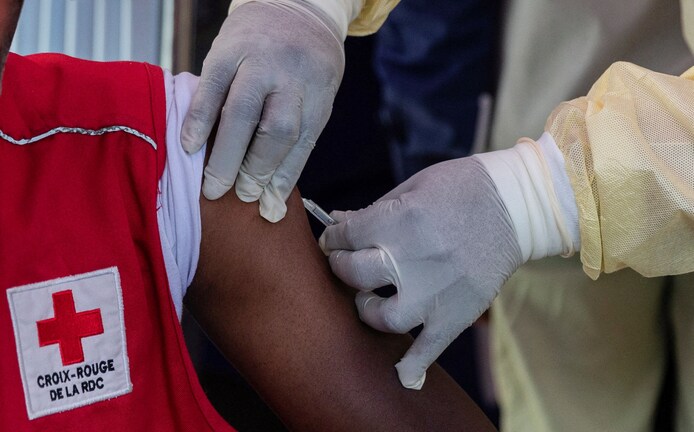A highly contagious variant of the mpox virus is now also circulating in Europe. Infections have already been detected in various countries around us – England, Belgium and now France – but the Netherlands has been spared for the time being. How big is the chance that we will follow and how bad is that?
On Tuesday, it emerged that a case of the more severe, contagious variant of the mpox virus has now been reported in France for the first time . The patient lives in the Brittany region and precautionary measures have been taken, the French Ministry of Health reports.
The infected person had not been to Africa himself, where the virus has been circulating since an outbreak in the Democratic Republic of Congo (DRC). It is also not without reason that mpox has since been found mainly in European countries that have former colonies – and therefore still many contacts – on the African content. Think of England, France and Belgium.
Human interaction
“This did not come out of the blue, it must have come from human interaction,” confirms virologist Ab Osterhaus. “Fortunately, we do not yet see that the mpox virus has established itself in Europe, it is still sporadic cases. Transmission mainly occurs through skin and sexual contact. Sex workers and men who have sex with men are particularly at risk.” But the virus can also be transmitted through contact with infected animals.
Some of these are a new (mutated) mpox variant, which is more contagious and somewhat more dangerous than the original version. The disease causes fever, muscle pain and rash. In Germany and Sweden, this variant has already been found in travelers from Africa.
The RIVM reports that there have been no reports of infections with the more severe mpox variant in the Netherlands so far. However, Rosa Joosten, infectious disease control physician at the RIVM, cannot rule out that reports will also come in the Netherlands. “But we have good guidelines, vaccinations and medication. In addition: this virus is not new, so the GGD system and source and contact research are in order. It is important that attention is kept on mpox, so that doctors can quickly recognize this variant of the virus, especially if someone or a loved one has just traveled to a risk area.”
According to virologist Osterhaus, it may be ‘a matter of time’ before we see cases here. “It still seems like pinpricks all over Europe, but I fear for the longer term. Look at the origin of the original smallpox virus: it also started mildly, but eventually cost millions of lives.” For example, it is estimated that in 18th-century Europe, 400,000 people died each year from smallpox, and that a third of the cases resulted in blindness.
Read more below the photo
In isolation
If someone is infected with the mpox virus, this person goes into isolation. This way, someone no longer has contact with others and the virus cannot spread. The GGD then conducts source and contact research. According to the RIVM, the chance that the new variant of the virus will spread in the Netherlands is currently small.
There are vaccines and good therapies against mpox. These should now be used in Africa to control the disease and prevent more serious problems at a later stage, says Osterhaus. “Otherwise the virus will eventually settle here, for example in the rodent population.” Close contacts of someone with mpox can be vaccinated, for example.
The Netherlands has sufficient vaccines in stock, according to the National Institute for Public Health and the Environment. There is also an antiviral drug available for possible complications.
How do I avoid getting infected with the mpox virus?
– Use the mpox vaccine if it is recommended to you
– Avoid close contact with people who have a rash that resembles mpox
– Avoid bites from animals that may carry the mpox virus (if it is prevalent), such as rodents
– If you are a caregiver of a person with mpox, limit your contact with objects and substances that the person uses
– Wash your hands with soap and water, especially after contact with a person or animal with mpox
 Kanawu Radio number 1 news portal
Kanawu Radio number 1 news portal
